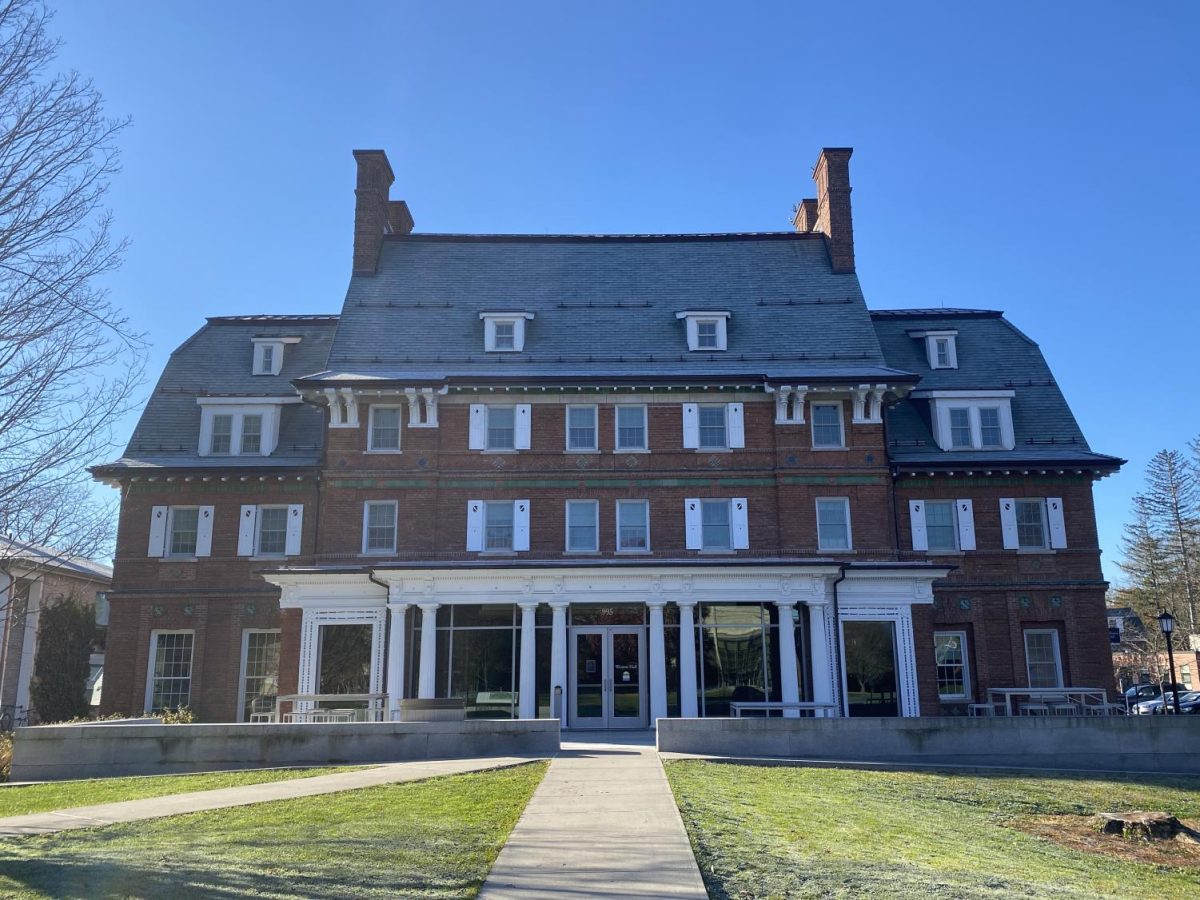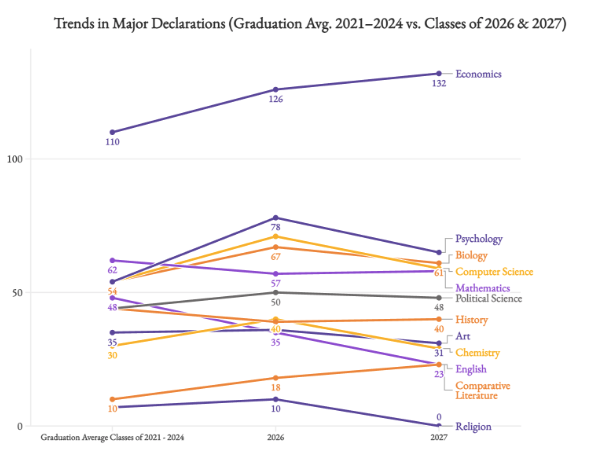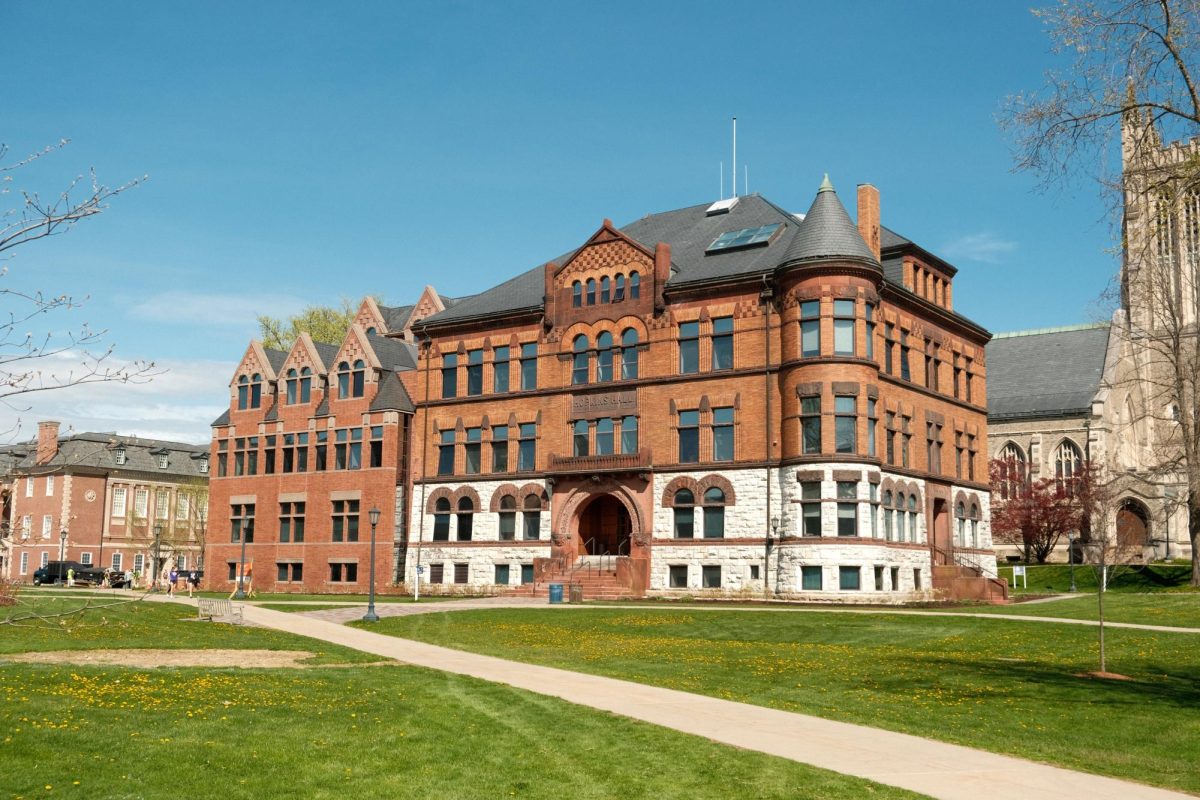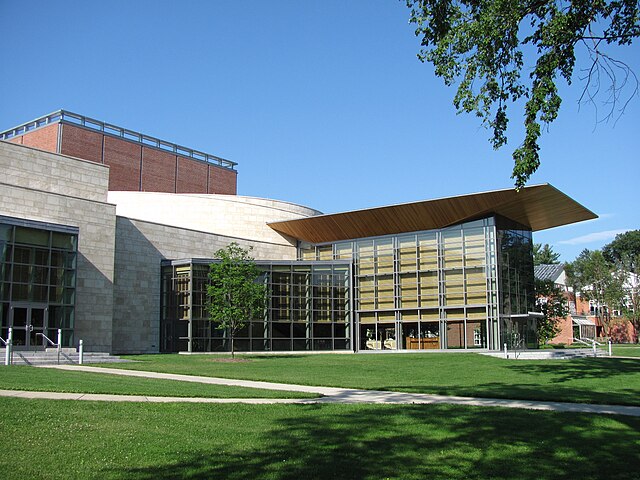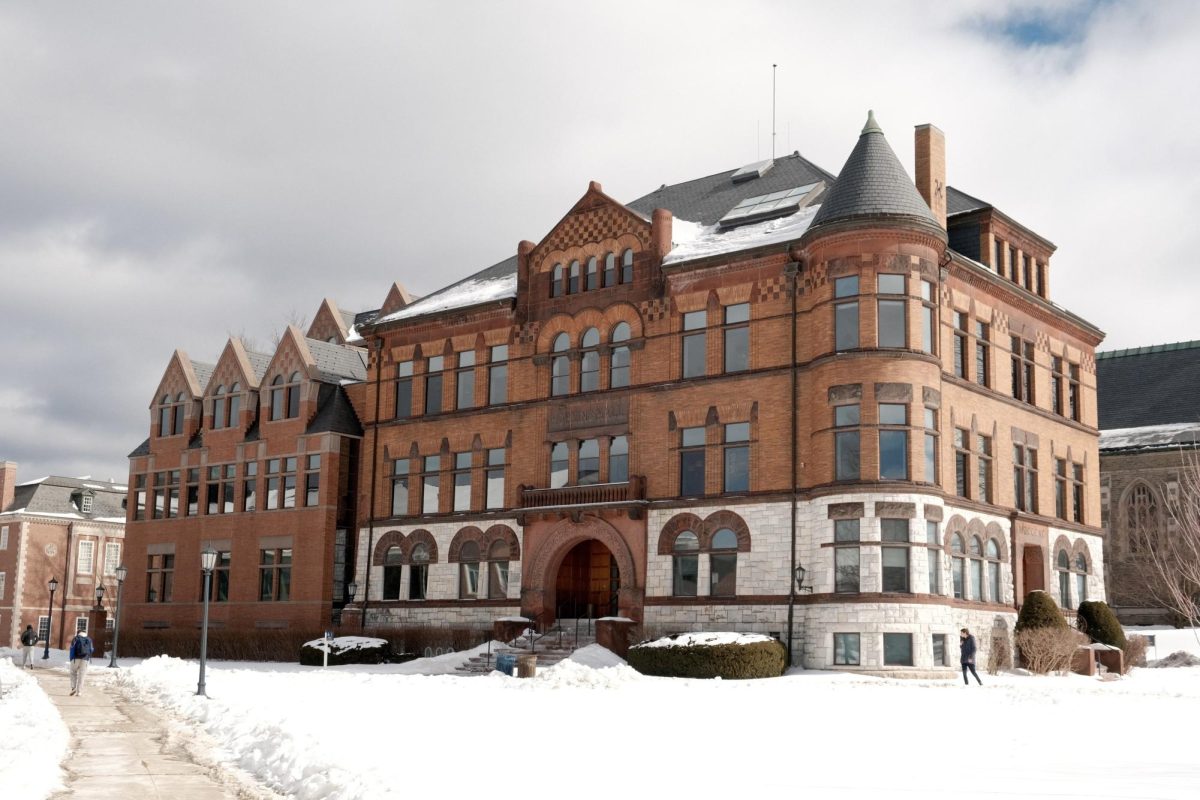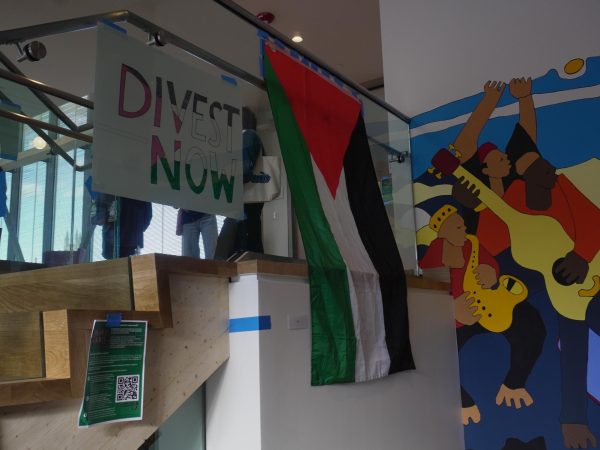
Students for Justice in Palestine (SJP) held events on Friday and Saturday to advocate for a new set of demands, written in collaboration with Jews for Justice (J4J), regarding the College’s endowment and investment policies. Since the organization’s revival in October, SJP has held several actions to protest the College’s investments in weapons manufacturers tied to Israel.
The new set of demands — which expand on SJP’s previous organizing relating to the College’s investments — call on the Advisory Committee on Shareholder Responsibility (ACSR) to institute a screening criteria for new investments in companies that maintain weapons contracts with the Israel Defense Forces (IDF), for the College to divest from suppliers for the IDF, and for the College to make the ACSR operate a standing committee. As of Tuesday evening, 147 had signed a petition stating the demands, secretary of the College’s SJP chapter Amy Garcia ’24 told the Record.
SJP held a walkout on Friday in front of Hopkins Hall and staged a 14-hour sit-in at the new Davis Center complex during Bolin Legacy Mentorship Weekend — an alum engagement weekend that honors the legacy of Gaius Charles Bolin Sr., Class of 1889, who was the first Black graduate of the College — which coincided this year with celebration for the Davis Center’s reopening. Both events were intended to be visible to the numerous alums in town for the Davis Center celebration as well as the trustees who are on campus for the Board of Trustees’ April meeting, Garcia said.
Garcia, who also helped organize the events, estimated that there were 60 students present at the height of the walkout on Friday. The event started at 1 p.m., which Garcia said was so that students would cause a public disruption by missing their early afternoon classes.
At the walkout, participants protested directly in front of some of the trustees outside of the Williams Inn, according to Garcia. “We were able to march down Spring Street to The Barn and chant there where the Board of Trustees were meeting, and they did hear us chanting,” she said. “We wanted to get their attention as they prepare for the next fiscal year.”
In addition to the walkout, SJP organizers constructed an art installation outside of Hopkins, which Garcia said represents destroyed Palestinian homes and infrastructure.
Though students came and went, approximately 20 to 30 students sat in at the new Davis Center at any given time on Saturday, Garcia said. SJP chose the Davis Center to reach alums and trustees gathering for Bolin Legacy Mentorship Weekend. “This was a very opportune moment for SJP,” Garcia said. “That’s a massive convergence of the Board of Trustees and alumni that are all in one place at the same time.”
Garcia made it clear that the sit-in was a protest and not sanctioned by the Davis Center or part of Davis Center programming. “We’re not acting with the Davis Center — the Davis Center hasn’t sponsored us,” she said. “We wanted to really make sure that our presence was known as disruptive.”
In an email to the Record, Assistant Vice President for Campus Engagement and Co-Director of the Davis Center Bilal W. Ansari said he admired the students’ efforts.
“Given the history of sit-ins and protests to establish the Multicultural Center, now the Davis Center, to establish Africana studies, [Latina/o studies], and Asian-American studies, and the legacy of protest by the Davis family, I appreciated students forcing discomfort and a deeper level of thought during our ceremonies that were meant to be celebratory,” Ansari wrote. He added that an alum told him they “loved witnessing that student activism is alive and well” and that the protests reminded them of students’ protests for the College’s divestment from apartheid in South Africa.
In addition to SJP’s actions, students from NBC and Purple Rain read statements in support of SJP’s demands before their performances.
The protestors staged sit-ins at various events and locations throughout the day. After sitting in at the Davis Center in the morning, organizers convened in the afternoon at the ’62 Center for Theatre and Dance to protest before the start of weekend’s keynote address, which featured a conversation between educator William Green ’03 and Assistant Director of Alumni Engagement for Diversity, Equity, and Inclusion Zorelly Cepeda Derieux ’14. Protestors delayed the event by chanting, read their set of demands, and encouraged alums to sign their petition, Garcia said.
During the event, President Maud S. Mandel presented the Ephraim Williams Medal, which recognizes alums for “exceptional service and loyalty,” to Joseph E. Harris, the College’s first Black professor with tenure and first chair of the Afro-American Studies Program (now the Africana studies department).
“The intent was not to protest the event itself, nor any of the award recepients, but to get our message directly to Maud … [and] any alumni who hadn’t yet heard our demands,” Garcia wrote to the Record.
Mandel declined a Record request for comment.
At the Davis Center, some alums interacted with the students, taking flyers and scanning the QR code to sign onto the group’s demands, including Board of Trustees Chair-Elect Betsy Andersen ’87, who spoke with Garcia about SJP’s demands, Garcia said. Andersen declined a Record request for comment.



